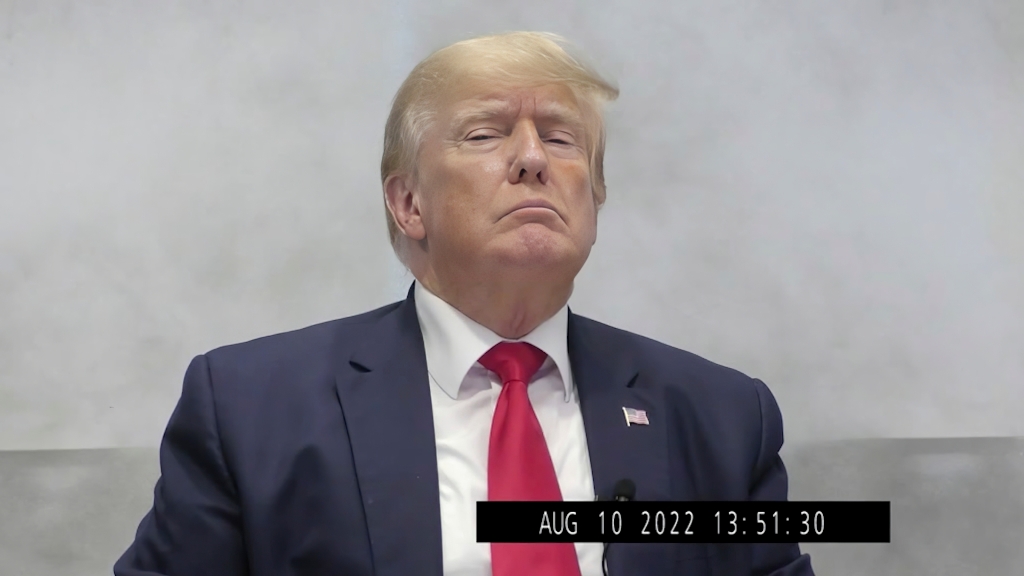Manhattan grand jury votes to indict Trump: sources
The Manhattan grand jury hearing evidence in the Stormy Daniels “hush money” investigation on Thursday voted to indict the former president, two sources with knowledge of the case told The Post.
The vote sets the stage for the first ever criminal prosecution of a former US president.
The grand jury that returned the unprecedented indictment had since January been hearing evidence and witness testimony related to a hush-money payment made on Trump’s behalf to porn star Stormy Daniels during his 2016 presidential campaign.
It comes as Trump, 76, is attempting to regain the White House for a third time, running for the 2024 Republican nomination.
He has blasted the investigation by the Manhattan District Attorney’s Office as a “political Witch-Hunt trying to take down the leading candidate, by far, in the Republican Party” and insisted “I did absolutely nothing wrong.”
Trump, who announced he expected to be arrested March 21 and called on his supporters to protest, also accused District Attorney Alvin Bragg, a Democrat, of “prosecutorial misconduct,” and claimed any charges brought against him would be barred by statute of limitations.
In the lead up to the 2016 election, Trump’s former personal attorney and fixer, Michael Cohen, paid Daniels $130,000 in exchange for her silence about an alleged affair she had with the New York real estate mogul in 2006. Trump denies the affair.
Cohen pleaded guilty in Manhattan federal court in 2018 and was sentenced to three years in prison for crimes related to the Daniels payment and another to model Karen McDougal he helped arrange prior to the election.
Trump, who was president at the time of Cohen’s guilty plea, did not face charges by federal prosecutors over the payments.
The Manhattan DA’s office then launched its probe into the Republican, with the case gaining momentum in recent months. Bragg had reportedly been building a case based on the Daniels payment being made with the intent to conceal or commit another crime.
Several figures close to Trump were spotted in March heading into the DA’s office for meetings with prosecutors, including his former political adviser Kellyanne Conway and ex-spokesperson Hope Hicks, as well as Cohen.
Cohen paid Daniels personally, but was reimbursed by the Trump Organization under the guise of legal expenses – leading federal prosecutors to charge the money had been falsely accounted for.
Bragg’s case hinges on the allegation that the crime of falsifying business records — bookkeeping fraud — was done in the commission of another crime, a campaign finance violation, The New York Times reported in March. The Times reported the charge would amount to a “low level” felony.

If Trump is convicted of bookkeeping fraud as a felony he could face up to four years in prison.
The charge usually has a five-year statute of limitations as a felony, but those are extended when a defendant continuously lives out of state, as Trump did during his presidency, the Times reported.
The statute of limitations was also extended by more than a year in New York due to the coronavirus pandemic.
Trump in mid-March was invited by Bragg’s office to testify before the grand jury. His attorney, Joseph Tacopina, at the time waved off the invitation as “much ado about nothing,” saying he didn’t believe the Democratic DA had a case.
“It’s just another example of them weaponizing the justice system against him. And it’s sort of unfair,” he said.
In addition to the Manhattan case, Trump is facing far-reaching legal exposure on a number of fronts.
In Georgia, a local prosecutor is investigating whether or not he committed a crime in an attempt to overturn the 2020 presidential election results.
He also faces a federal investigation headed by a special counsel who is probing his handling of classified materials after leaving the White House and his involvement in the Jan. 6 Capitol riot.
Trump has repeatedly proclaimed his innocence, calling the probes into him a “witch hunt.”
Read the full article Here


